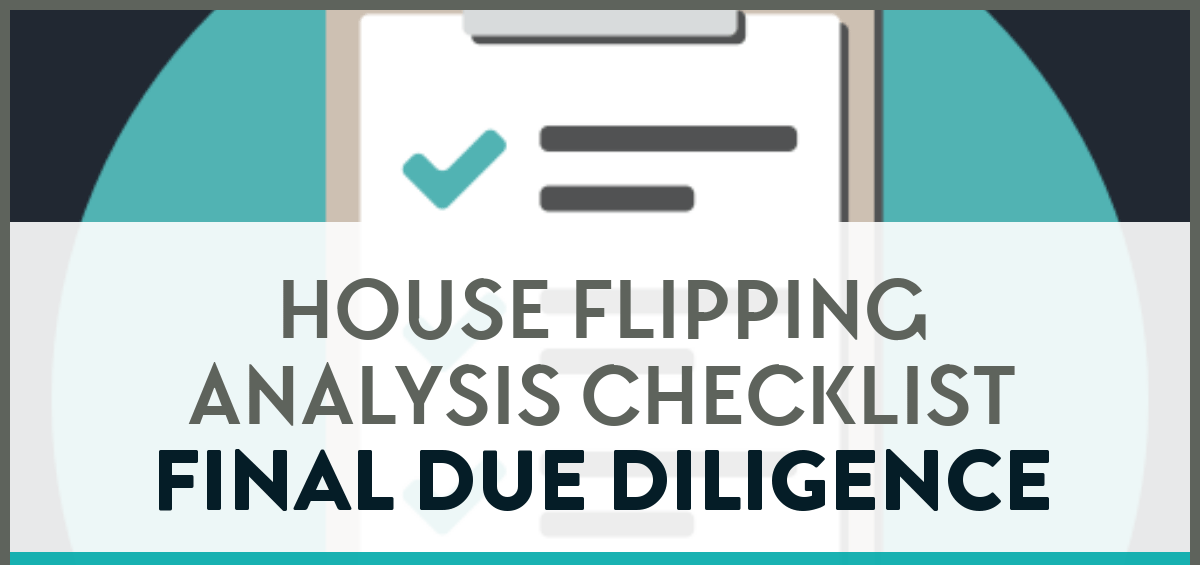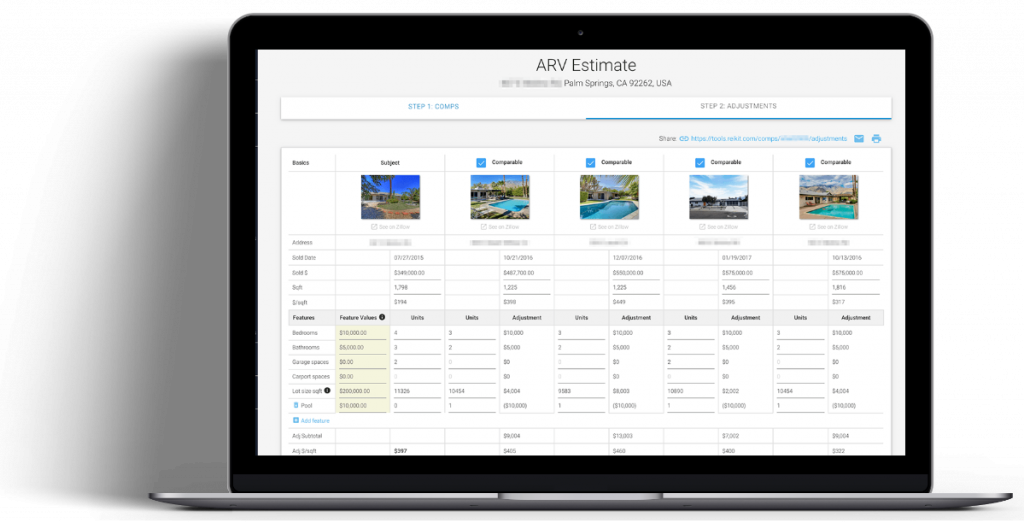
With this final due diligence checklist, you are looking for major problems with the property that go beyond just estimating the level of repairs.
These issues might include uncovering un-permitted additions, or conflicts within the chain of title.
This last step of analyzing the flip also involves getting repair quotes from contractors.
You’ll use this information to fine-tune your analysis and offer, negotiate further with the seller, or cancel your offer.
Check title, easements, encroachments
Run title search to ensure title is clear of clouds and defects, and identify all easements and encroachments. You’re looking for tax liens, mechanics liens, any gaps in chain of title, and lis pendens notices.
Verify legality of square footage
Confirm any square footage with the assessor’s office and building inspector.
If discrepancies between seller’s listed square footage and actual, find out what accounts for the additional square footage and whether it is permitted or not.
Measure the square footage.
Order a property inspection
Have the house inspected, and create an itemized list of repairs and replacements.
Solicit bids for repairs
Select a contract who has provided a final scope of work and bid amount.
For step-by-step, see the Solicit Rehab Estimate Bids Checklist.
Determine if repair bids change the level of property rehab you were expecting
Compare the level of repairs you estimated in the rehab cost estimator with the bids you received.
Construction bids that come in much higher or lower than expected from all of the contractors require you to re-work your numbers.
If inspection has problems or bids are too high, renegotiate or cancel contract
You’ll want to renegotiate with the seller if you run into this issue:
The inspection report comes back with extensive or unexpected damage. As a result of that, your repair bids are much higher than you originally estimated.
If the seller refuses to negotiate, you may want to cancel the contract and move on to the next property.
Get appraisal if necessary
If your lender requires it, order an appraisal. The appraiser will then determine the After Repair Value that lenders will rely on when considering whether to supply the loan.
If appraisal comes back low, renegotiate or cancel contract
Any appraisal that comes in lower than the sales price is reason for opening negotiations with the seller.
If the negotiations fail, cancel the contract.
Download Free House Flipping Final Due Diligence Checklist PDF
Download Free House Flipping Final Due Diligence Checklist Excel
Initial Due Diligence
Missed the first stage in the due diligence process?



